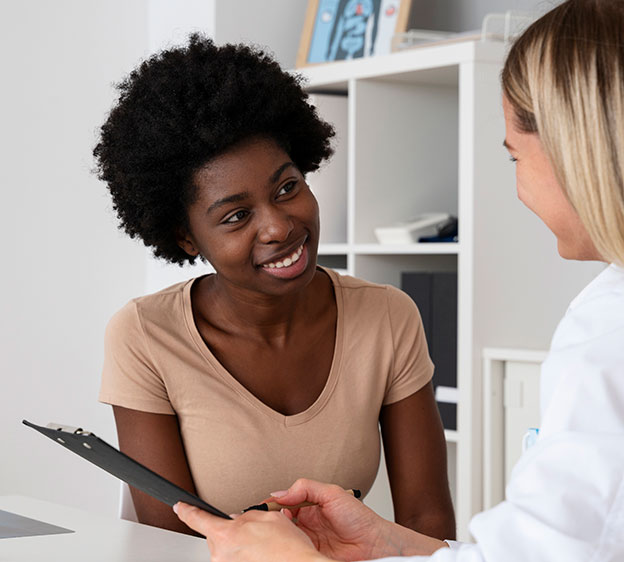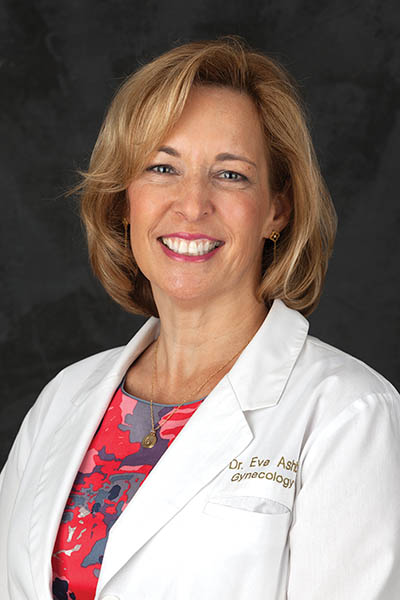
Cervical cancer rates have dropped dramatically overall since the 1970s, but they are on the rise in women between ages 30 and 44. Between 2012 and 2019, cases of cervical cancer in this age group rose nearly 2% every year. The good news is that most of these cancers are found at early stages. In addition to getting screened, knowing the signs of cervical cancer can help you stay proactive and know when to reach out to your doctor.
“When detected early, cervical cancer is curable,” says Dr. Eve Ashby, FACOOG, a board-certified gynecologist at Beaufort Memorial Lowcountry Medical Group Specialty Care. “That’s why knowing the symptoms and staying current on screenings is so important. While vaccines are helping prevent cervical cancers, especially in women in their early 20s, it’s still vital for all women to be aware of the symptoms, especially women in their 30s and 40s who may not have had an HPV vaccine.”
Read More: Gynecologic Cancer: What Every Woman Should Know
The Human Papillomavirus (HPV) and Cervical Cancer
Almost all cases of cervical cancer are caused by HPV, a sexually transmitted infection. While most HPV infections go away on their own and do not lead to cancer, certain high-risk types can last for years. These infections can change cells in the cervix, which is the lower part of the uterus at the top of the vagina, and cause precancerous lesions to form. If these lesions are not removed, cervical cancer can develop.
Certain risk factors can make it more likely for a person with a high-risk HPV infection to develop cervical cancer. Those risk factors include:
- Being obese, as obesity can make screening more difficult and lead to lower chances of detecting precancers
- Having a weakened immune system, which can make it more difficult for your body to fight the infection
- Smoking or being exposed to secondhand smoke, with the risk increasing with higher exposure
- Your reproductive health history, such as using oral contraceptives or giving birth to many children, although the reasons for this are not known
How to Prevent Cervical Cancer
HPV vaccines can prevent the vast majority of cervical cancer cases, as can regular screenings and follow-up after abnormal Pap or HPV test results.
The HPV vaccine, given in two or three doses depending on age, has been proven safe and effective. It is most effective when given before a person becomes sexually active. The Centers for Disease Control and Prevention recommends all children receive an HPV vaccine at age 11 or 12. It can be given as early as age 9 and as late as age 26. Some people ages 27 to 45 may also benefit. If you are in that age range but never received the HPV vaccine, ask your women’s health provider if you need it.
Even if you have received the HPV vaccine, routine screening for cervical cancer is still important, because the vaccine doesn’t protect against all types of high-risk HPV strains. Three types of screening are available:
- HPV test, which checks cells for high-risk HPV infection
- Pap test, which checks the cervix for abnormal cells, both precancerous and cancerous
- HPV/Pap co-test, which looks for both high-risk HPV infection and changes in cervical cells
HPV tests and Pap tests are done in the same way. Your women’s health provider will examine the inside of your vagina and your cervix and collect cervical cells and mucus to send to a lab for analysis.
How often you should get screened depends on which type of test you have. According to the U.S. Preventive Services Task Force, you should get your first Pap test at age 21 and then every three years until you’re 29 years old. Between ages 30 and 65, you should:
- Get an HPV test every five years OR
- Get a Pap test every three years OR
- Get an HPV/Pap co-test every five years
Talk to your doctor about which screening method is right for you. No matter which test you have, the most important thing is to make sure you get screened regularly.
Free Download: Screenings Women Need
What Are the Signs of Cervical Cancer?
Cervical cancer symptoms vary depending on the stage of the disease. Usually, symptoms don’t appear until after the cancer has spread. However, early signs sometimes appear, including:
- Pain during sex
- Pelvic pain
- Periods that are longer or heavier than usual
- Vaginal bleeding after sex
- Vaginal bleeding after menopause or between periods
- Watery vaginal discharge that has an unpleasant odor or contains blood
Additional signs can develop after cervical cancer has spread to other parts of the body. Symptoms of advanced cervical cancer include the symptoms above, as well as:
- Abdominal pain
- Backache
- Fatigue
- Painful bowel movements, with or without bleeding from the rectum
- Painful urination, with or without blood in the urine
- Swollen legs
Read More: Cancer Symptoms You Can’t Afford to Miss
If you notice any cervical cancer symptoms, see your provider right away. Other conditions can cause similar symptoms, and your provider will determine whether additional tests are necessary.
Those tests could include a colposcopy, in which your doctor uses a speculum and a tool called a colposcope to examine the cervix. A biopsy is usually taken at this time as well to check for abnormal cells.
Later, if your tests show signs of cancer, your provider will likely recommend imaging, blood work and other tests to determine the stage and course of treatment.
Approximately 92% of women diagnosed with early stage cervical cancer live at least five years or longer. By staying vigilant about getting regular cervical cancer screenings, you can help ensure any precancerous or cancerous areas are detected early.
Questions about getting an HPV vaccine or getting screened for cervical cancer? Request an appointment with a Beaufort Memorial women’s health provider.

